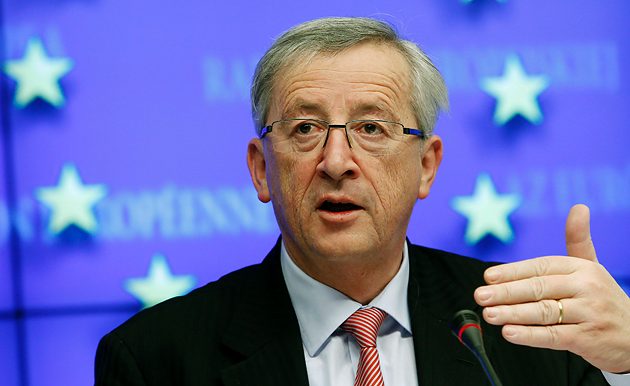Jean-Claude Juncker unveils €315 billion investment plan to kick-start EU economy
Jean-Claude Juncker, the newly appointed European Commission president, has revealed details of a €315 billion ($393 billion) investment plan to kick-start Europe’s economy.
At the heart of Jean-Claude Juncker’s 5-year agenda is a new €21 billion fund, which would be used as “seed money”, to entice private backers to “pitch in” most of the rest.
Only €8 billion of the original money would come from the EU budget itself.
The project would take the burden off national governments, already facing big debts after the financial crisis.
Critics have already suggested that the scheme is too small, and needs far more hard cash if it is to make a major difference.
However, Jean-Claude Juncker said Europe had to face “the challenge of a generation” head-on, without a money-printing machine, describing his plan as the greatest effort in recent EU history to trigger additional investment without changing the rules.
Illustrating the type of projects he had in mind, Jean-Claude Juncker said he had a vision of:
- Schoolchildren walking into a brand new classroom equipped with computers in the Greek city of Thessaloniki
- European hospitals saving lives with state of the art medical equipment
- French commuters charging electric cars on motorways in the same way as petrol stations were used now
- Households and companies becoming more energy efficient
The Commission and the European Investment Bank (EIB) would create the fund’s €21 billion reserve, according to Jean-Claude Juncker, which would then enable the EIB to fund loans worth €63 billion. Private investors would be expected to put forward the lion’s share of the money, some €252 billion.
Jean-Claude Juncker’s speech came a day after Pope Francis addressed the same parliament, criticizing an “elderly and haggard” Europe that had become less and less protagonist.
Initial reaction to Jean-Claude Juncker’s plan came from Chancellor Angela Merkel, who told the German parliament that her government supported the package in principle, but it had to be clear to everyone where the projects were in the future.
The Commission president, who came to office at the start of November, said he could not promise how much investment would go to each country, but he argued that investment in one country could only be good for growth in another.
Structural reforms were necessary to modernize Europe’s economy and fiscal responsibility was needed to restore confidence in public finance, but now investment had to be boosted as well, he said.
The start of the former Luxembourg prime minister’s term as president has been overshadowed by his country’s role in a tax break row.
Hundreds of multi-national firms were reportedly attracted to Luxembourg in legal tax avoidance schemes. Jean-Claude Juncker was prime minister at the time but denies wrongdoing.
Although a vote against Jean-Claude Juncker is due to take place at the European Parliament on November 27, it is unlikely to attract widespread support.
